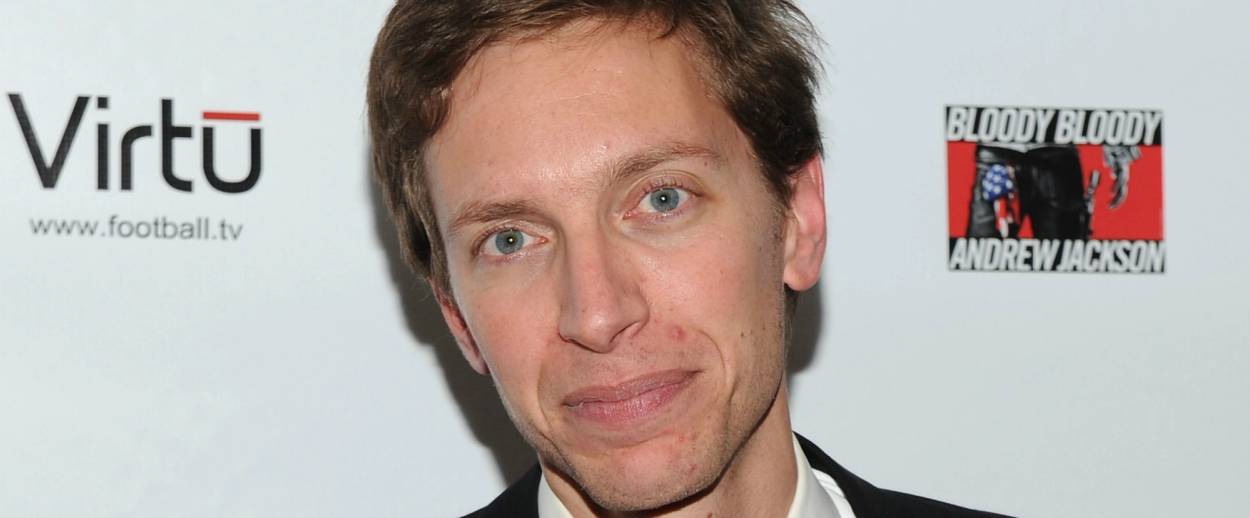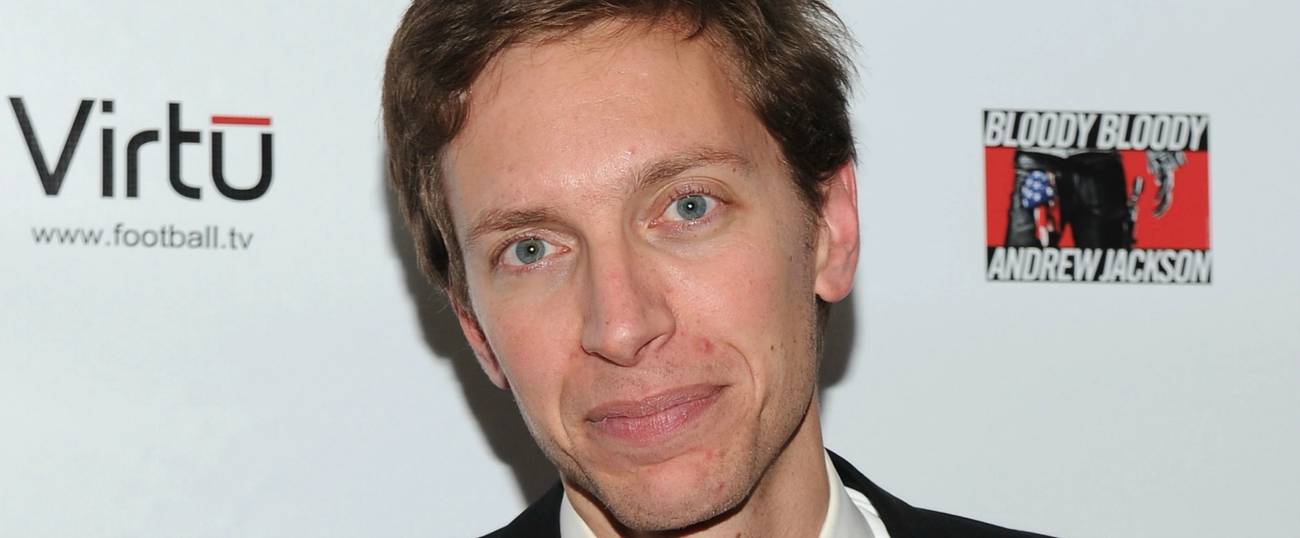Michael Friedman, Talented Broadway Composer, Dies at 41
His ‘Bloody Bloody Andrew Jackson’ foresaw our populist political moment




Michael Friedman, the composer and lyricist and genius and mensch who died on Saturday, had a shtick. Actually, Michael had many shticks. He talked fast and loud. He thought fast and loud. He’d fall on the floor, literally lie down on the floor, in laughter or amazement. He’d charm the hell out of you.
But I’m thinking of another shtick. In his 20s, when he was starting out, he’d go to some annual theater event at which, each year, he’d be introduced to Stephen Sondheim. Stephen Sondheim would ask him what he did. How do you tell Stephen Sondheim that you’re a brainy hyperliterate aspiring musical-theater songwriter? And so each year Michael would make something up (or so he told me). He was a barber, a stenographer, for all I know a nuclear physicist.
The last time I saw Michael, this summer, he was running frantically and happily—he was always frantic and happy—across the lobby of New York City Center, preparing for the first night of his production of Sondheim’s Assassins. Michael died tragically young, at 41, but by his late 30s everyone in theater, everyone in New York, seemingly everyone who was smart and talented, everyone including Stephen Sondheim, had figured out who he was.
Michael was the smartest and most talented person I know. I knew. His loss is devastating, and not just because he was young, smart, and talented. His work was endlessly innovative, and he was set to be a leading force in the next half-century of musical theater. He was insanely prolific—a show on Broadway, several successes Off, and amazing work with the downtown theater troupe he co-founded and through which I met him, The Civilians—but he hadn’t yet had the breakout hit that would make him a household name to theater kids across the country.
And he is also the first person I know, and I imagine one of the few people my generation of both gay men and theater people know, to die of what’s being described as complications from HIV/AIDS. When I saw him this summer, he was gaunt, with marks on his face. I assumed he was working too hard and not sleeping; I realize now I was seeing something I’d seen before only in Angels in America or The Normal Heart. This is not supposed to happen anymore, not among people in New York with health insurance and wherewithal.
It’s all just incomprehensible.
I first became aware of Michael when a friend, a college buddy of his, took me to an early production of The Civilians’ first show, Canard Canard Goose. It was a silly but thoughtful confection about an effort to find wild geese that had allegedly been abandoned by Disney after the filming of Fly Away Home. The troupe practices what it calls “investigative theater”; they interviewed people and constructed a reported story, using their words. Michael’s songs were mesmerizing. I described them to people then as Anna Deveare Smith set to music—he didn’t just write beautiful, powerful songs; he’d done that while constructing them from other people’s words. His true brilliance was that he was so endlessly informed and aware and allusive and attentive. In his lyrics, he could know and reference seemingly anything, and he could do it even with found text.
He came to Broadway with Bloody Bloody Andrew Jackson, which wasn’t a success there but had triumphed in the intimacy of the Public Theater. It foresaw our populist political moment and turned the seventh president into a whiny, needy Brooklyn hipster. He wrote the gorgeous score for The Fortress of Solitude, the musical adaptation of Jonathan Lethem’s novel. He composed music for countless other productions, at the Public, on Broadway, wherever. Someone I know, I forget who, has a story about making backstage smalltalk with Meryl Streep about Michael’s manic charm, because of course Meryl had worked with him, and loved him, too.
He did some of his best work with The Civilians. I still think about the first workshop production of the troupe’s In the Footprint, about the politics of Brooklyn’s Atlantic Yards redevelopment. It was eventually trimmed to a coherent play, but for that workshop, at the decrepit Brooklyn Lyceum in Park Slope, it was a sprawling, insightful, funny, moving pageant about development and gentrification, performed by professional actors and also local non-actors, people from the affected communities, all knitted together by Michael’s witty songs. His found-text number about the borough’s demographics is prose-poem perfection.
His name notwithstanding, Michael wasn’t Jewish. His father was, but his mother was Protestant and he grew up, outside Philadelphia, in Quaker schools. But he was brilliant and neurotic and deeply humanistic and politically active and he worked in musical theater, that most Jewish of art forms. The day after his death, the Public, one of Michael’s many creative homes, opened its restaurant for Michael’s family and friends and colleagues to remember him. There were tears, but there was more laughter. There were stories of Michael, of his songs, of his quirks, of his ridiculously giddy exuberance; it was a shiva.
I came home and put on the cast recording of The Civilians’ best-known production, Gone Missing. The show is a meditation on loss. Michael, of course, wrote the songs. The final one is called “Stars”:
When I lost my keys
you told me
the words of Plato,
that our possessions are only shadows,
echoes of fate.
So the things that you lose,
you never possessed.
You’re only remembering,
only remembering.
And all we see is stars,
falling from so far away.
The things that we see
are just memories of the things that used to be.
So I know that you understand
that nothing we have is real.
We’re just tying to get back
to a place we knew before.
So when I leave you
you’ll know
I’m just a shadow,
an echo.
You never possessed me,
never possessed me.
And all we see is stars,
falling from so far away.
The things that we see
are just memories of the things that used to be.
It’s always a sad song. Today it is heartbreaking.
Jesse Oxfeld, a former executive editor and publisher of Tablet Magazine, is a freelance theater critic. He was The New York Observer’s theater critic from 2009 to 2014.